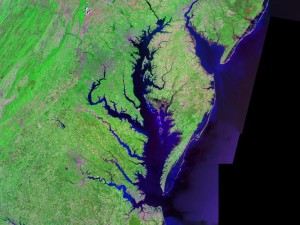It’s been two weeks since The Washington Post reported that 21 states’ attorneys general filed a court brief opposing the Chesapeake Bay cleanup plan, but the shock has yet to wear off for some. In their brief, attorneys general from most of the states in the Mississippi River watershed, joined by those from as far away as Alaska and Utah, officially supported the American Farm Bureau Federation in its suit against EPA for setting pollution limits to clean up the Chesapeake Bay. They argue that, in brokering the Chesapeake Bay cleanup plan, EPA overstepped its authority under the Clean Water Act.

In reality, these states care little about what goes on in the Chesapeake Bay – good or bad. Rather, in their brief, they admit their real fear: That Bay cleanup will set a precedent for cleanup in the Gulf of Mexico. Both of these national treasures suffer from dead zones each year, when nutrients from farms, lawns, and sewers wash into streams and rivers and ultimately, into these estuaries. There, excess nutrients fueled by the warm summer sun, trigger blooms of algae over large areas. When the algae inevitably die and decompose, they deplete the oxygen in the water making it uninhabitable for marine life.
For years, EPA let states determine how to reduce the runoff from their waters. That approach hasn’t worked. And so in 2009, President Obama issued an executive order calling on EPA to coordinate state efforts to meet Clean Water Act requirements and develop a timeline for improvement. All six Bay states – Maryland, Virginia, Pennsylvania, New York, Delaware, West Virginia — and the District of Columbia participated in developing plans to meet their pollution limits. Although no similar executive order exists for the Gulf of Mexico, environmentalists have sued EPA to take more aggressive action there.
Bay state conservationists aren’t taking this western invasion lying down; they’re throwing the states’ own rhetoric back at them. The Chesapeake Bay Foundation (CBF) has started a petition to “tell Texas and the rest: Don’t mess with the Chesapeake.” They’re hoping for at least 25,000 signatures from local and other concerned citizens. As of February 19, they reported more than 21,000 signatures.
In a press release soon after the attorneys’ general filed their brief, CBF President Will Baker told the offending states to go home:
“We say to Missouri, Indiana, Kansas, Alaska, and the other 17 states, don’t tell us how to restore clean water in our backyard. Each of the six Bay states and the District of Columbia—including hard working farmers, businesses, and individuals—are cooperating. Together, we are well on our way to making our rivers and streams safer, improving habitat, protecting human health, and strengthening local economies. Those are good things, at least here.”
Only one of the 21 states that signed onto the brief is in the Bay watershed – West Virginia. But after January’s chemical disaster in Charleston, WV, perhaps other states might be wise not to follow West Virginia’s lead when it comes to clean water.


Amy
Great Post….Thanks so much. It’s funny, sad, scary; all of that how what happens as a positive in one part of the country, can get folks in the other parts all riled up that, Hell, they might have to do it too.
Although I bet TMDL’s on the mighty Mississippi would be MIGHTY too.
Thanks so much for your help with all this..
George